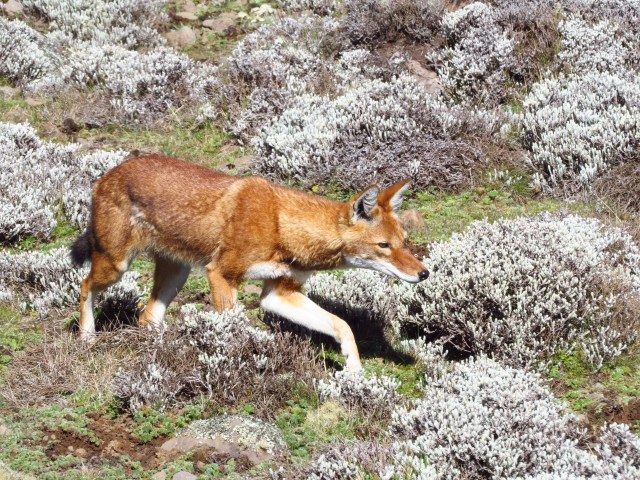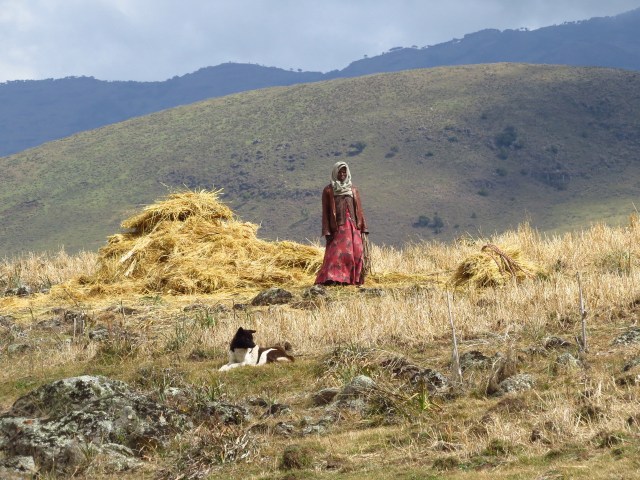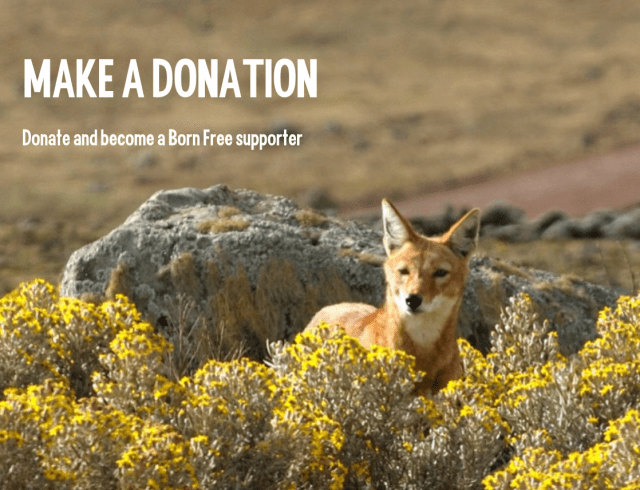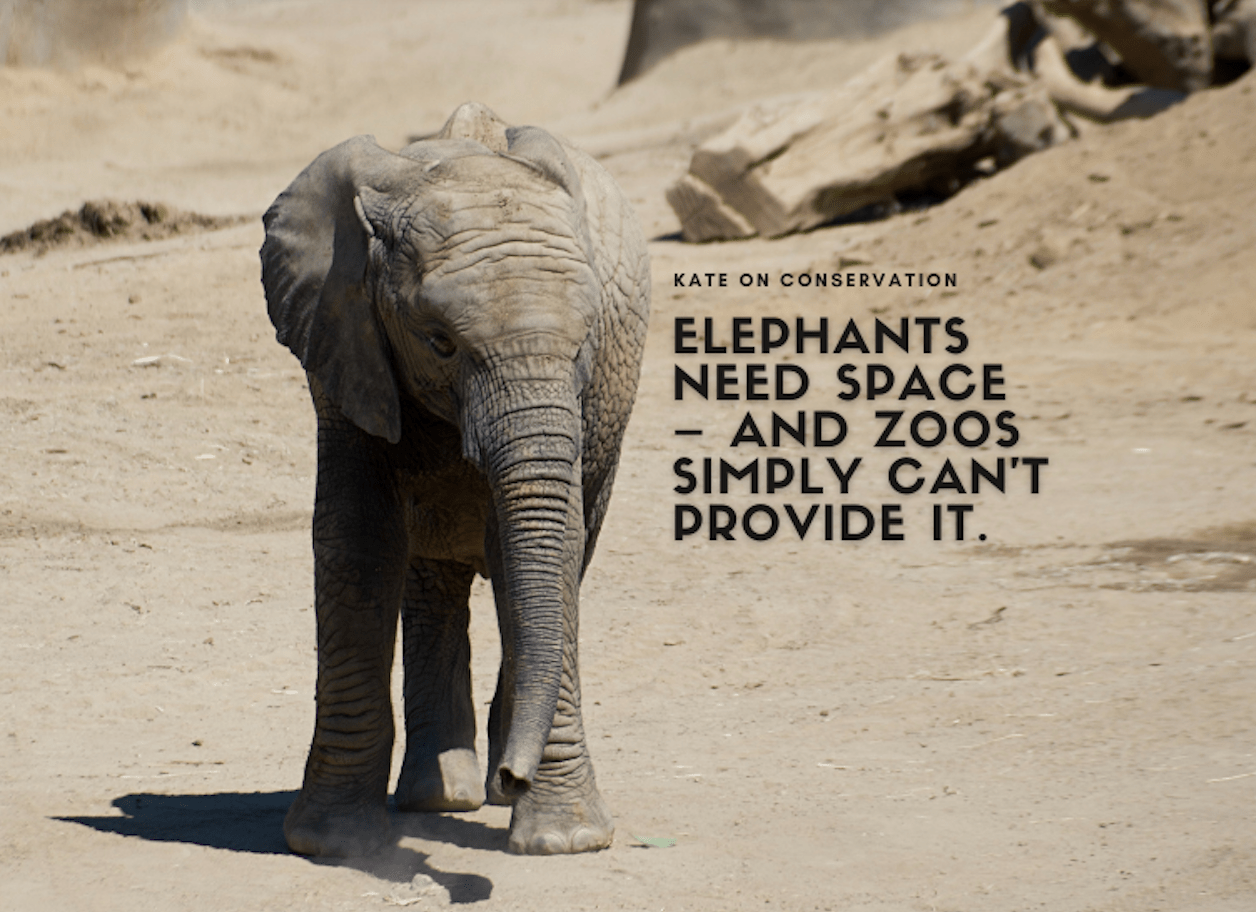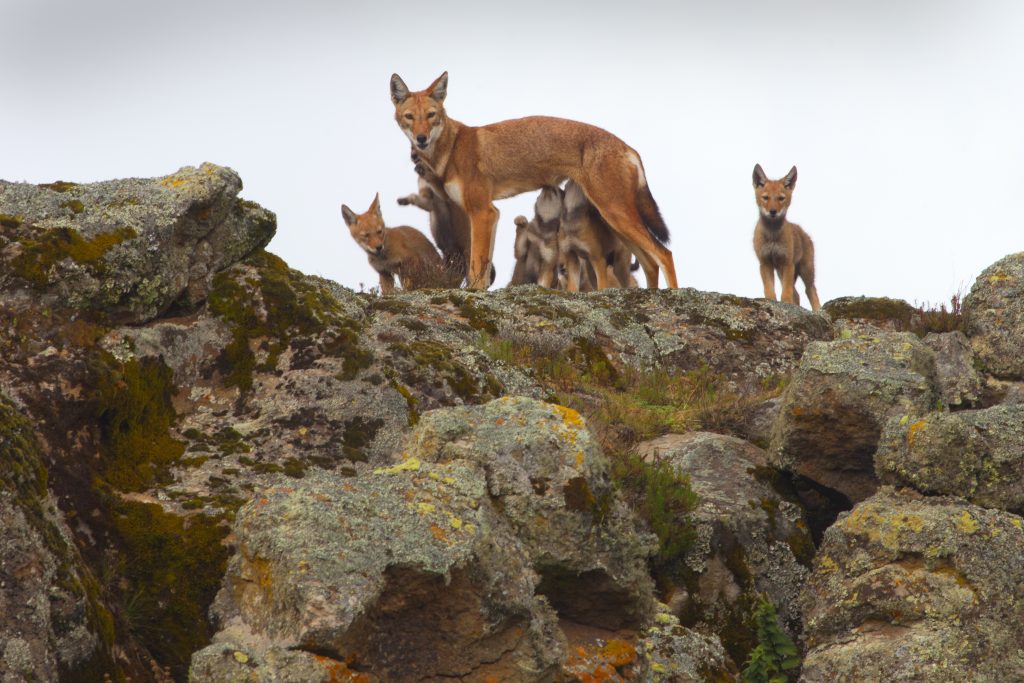
World’s rarest wolves: ghosts of the mountains
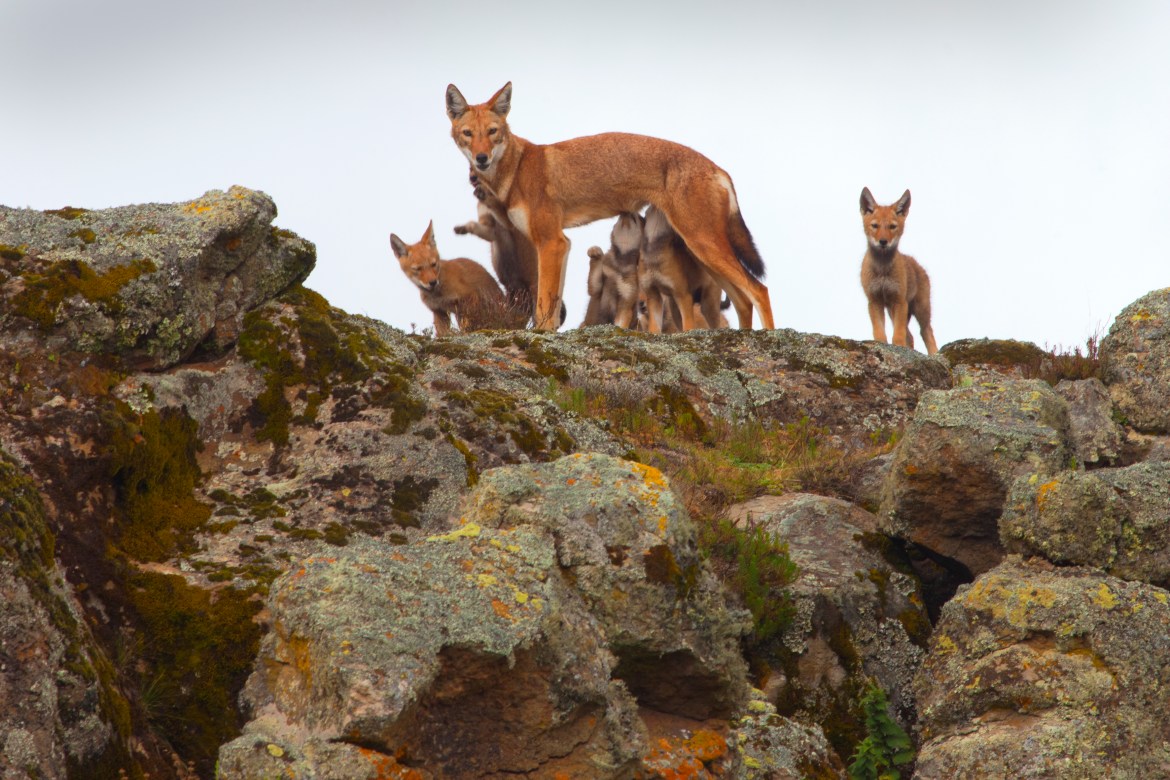
Meet the world’s rarest wolves. Discovered inside thehighlands of Ethiopia, in a handful of mountain rangesat altitudes between 3,000m and4,700m, the Ethiopian wolves quantity merely 500 in worldwide inhabitants. With such a small and specific residence fluctuate, these animals are Africa’s rarest carnivore and are discovered solely contained in the Roof of Africa, going by the use of harsh native climate circumstances in shrinking homelands.
A wolf in disguise
The Ethiopian wolf is the world’s rarest canid, and most fastidiously associated to gray wolves and coyotes — although it’s generally commonly known as a ‘wolf in fox’s clothes’. A particular red-tinged coat and bushy tail have helped the species to earn this nickname, together with their slender legs and slim muzzles.
Dwelling in heathlands and moorlands amongst Africa’s most densely populated rural areas, the Ethiopian wolf’s slim muzzle helps it todig out prey (largely enormous mole rats and grass rats) from their burrows, whereas their extensively spaced small enamel assist them to deal with small prey species with ease.
Prowling in packs
Like completely completely different species of wolves, Ethiopian wolves reside in close-knit territorial packs.
Packs may embody as quite a bit as 18 adults belonging to an prolonged household group with a robust hierarchy. Solely the dominant feminine will breed with the dominant male, to keep away from in-breeding, nonetheless completely completely different pack memberswill help in caring for the yearly litter of pups,serving to to feed and defend them.
Ethiopian wolf packs congregate to patrol their territory at daybreak, noon and contained in the evening time, resting collectively at evening.
Trapped on islands contained in the air
Though Ethiopian wolves are correctly tailored to their life contained in the Afroalpine meadows, the species solely arrived contained in the Horn of Africa comparatively merely presently, at spherical 100,000 years before now. The wolves colonised this home by the use of land bridges connecting Africa to Eurasia.
Correct this second, nonetheless, they’re trapped on their mountain islands, which stand on either side of the Rift Valley. As native local weather change raises temperatures and alters landscapes, their islands contained in the air are shrinking. The wolves’ unimaginable specialist variations may even see them caught in an ecological lure.
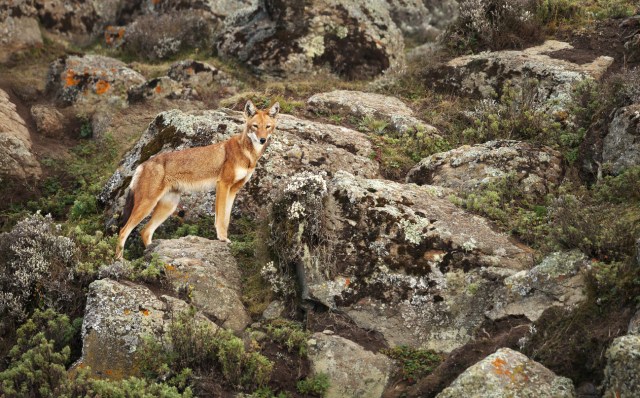
Disappearing wolves
In these densely populated rural lands, it is not solely the have an effect on of habitat loss by the use of native local weather change that threatens the way in which through which forward for the Ethiopian wolf; thought of one among many greatest contributors to their gradual disappearance is the presence of residence canine.
Ethiopian wolves have extended been vanishing from the panorama as they’re liable to catching each rabies and canine distemper from the home canine which have taken up residence alongside human populations. Residence canine furthermore compete with their wolf cousins for meals.
A twist contained in the story
Already, it’s thought of a privilege to catch a glimpse of those unimaginable uncommon animals, nonetheless until their state of affairs alters, these ghosts of the mountains will certainly develop to be the stuff of fantasy and legend.
The long run survival of the remaining numbers relies upon upon rescuing these packs decimated by illness and creating new pockets of inhabitants in a number of areas.
The Born Free Basis, which has been concerned in saving the species since 1995, works with Ethiopia’a authorities and native communities to guard the wolves. Utilizing each their One Successfully being method and efforts to translocate wolves between populations and to areas they as rapidly as inhabited, it’s hoped that they will forestall native extinction and maintain genetic range.
